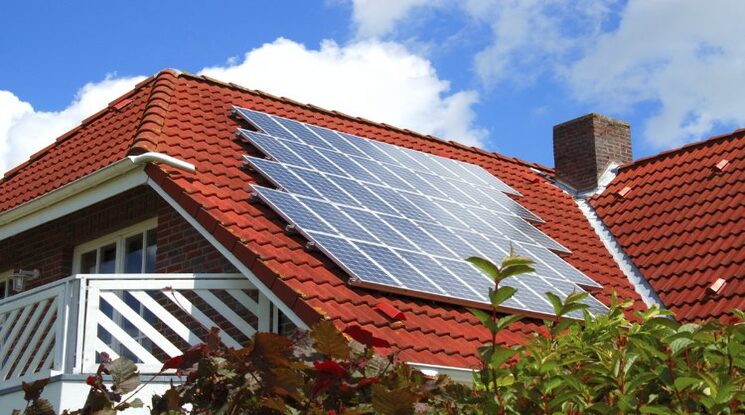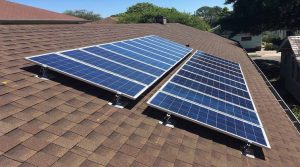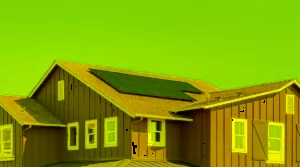In the quest for sustainable energy solutions, solar panels have emerged as a beacon of hope. They harness the sun’s abundant energy and convert it into electricity, significantly reducing our carbon footprint. However, the initial cost of purchasing and installing brand-new solar panels can be a barrier for many individuals and businesses. This is where the option of buying used Solar panels Virginia enters the scene. But before you make a decision, there are important factors to consider. In this comprehensive guide, we’ll explore the pros, cons, and key considerations when it comes to purchasing used solar panels.
Understanding Used Solar Panels
Used solar panels, also known as second-hand or pre-owned panels, are photovoltaic modules that have been previously installed and operated. These panels may have been removed from residential, commercial, or industrial installations for various reasons, such as upgrades, replacements, or system decommissioning.
Pros of Purchasing Used Solar Panels
1. Cost Savings: The most significant advantage of buying used solar panels is the cost savings. Used panels are generally more affordable than new ones, making solar energy more accessible to a broader audience.
2. Environmental Impact: Opting for used solar panels contributes to reducing electronic waste. By extending the lifespan of these panels, you’re preventing them from ending up in landfills and further impacting the environment.
3. Availability: Used solar panels may be readily available in the market. As more people upgrade their systems to newer models, there’s a growing supply of second-hand panels that can be utilized effectively.
4. Decent Performance: Solar panels have a long operational life, often exceeding 25 years. Even used panels can still perform well and generate a significant amount of electricity, especially if they were well-maintained.
Cons of Purchasing Used Solar Panels
1. Uncertain Lifespan: When purchasing used panels, it’s challenging to determine their exact remaining lifespan. Factors like previous usage, maintenance, and exposure to harsh weather conditions can impact their performance.
2. Warranty Concerns: Used panels might come without a warranty or with limited coverage. This lack of warranty protection could leave you vulnerable to potential malfunctions or reduced efficiency.
3. Efficiency Loss: Over time, solar panels experience a gradual decline in efficiency. When purchasing used panels, this decline may be more significant compared to new panels, affecting their overall energy production.
4. Compatibility: Used panels might not be compatible with the latest solar technologies, inverters, or monitoring systems, limiting your ability to integrate them seamlessly into your existing setup.
Key Considerations for Buying Used Solar Panels
1. Source and Reputation: Purchase used solar panels from reputable sellers or dealers. Research their history, customer reviews, and any available information about the panels’ previous usage.
2. Inspection: Before finalizing a purchase, inspect the panels for physical damage, such as cracks or broken glass. Ask for detailed images and inquire about any issues the panels might have.
3. Age and Usage: Inquire about the age of the panels and their usage history. Panels that have been in service for a shorter duration are generally preferable.
4. Efficiency Ratings: Check the efficiency ratings of the panels. While used panels might not perform at their original efficiency, aim for ones that have retained a reasonable level of efficiency.
5. Warranty Options: Some sellers might offer limited warranties on used panels. Even if the warranty period is shorter, having some level of coverage can provide peace of mind.
6. Professional Advice: Consult with solar energy professionals or technicians before making a purchase. They can assess the panels’ condition, compatibility, and potential integration challenges.
7. Compatibility: Ensure that the used panels are compatible with your existing solar setup, including inverters and monitoring systems. Incompatibility could lead to operational issues.
Purchasing used solar panels in Virginia can be a strategic move to embrace renewable energy while saving costs. However, it’s crucial to approach this option with caution and thorough research. Balance the benefits of cost savings with the potential drawbacks of uncertain lifespans and efficiency loss. By considering factors like the source of the panels, their condition, and compatibility with your system, you can make an informed decision that aligns with your sustainability goals and financial considerations.
Remember, while used solar panels might not offer the same pristine conditions as new ones, they still have the potential to contribute significantly to your energy needs and reduce your environmental impact. By taking the time to educate yourself and consult professionals, you can navigate the world of used solar panels and make a choice that’s both environmentally conscious and economically sensible.




